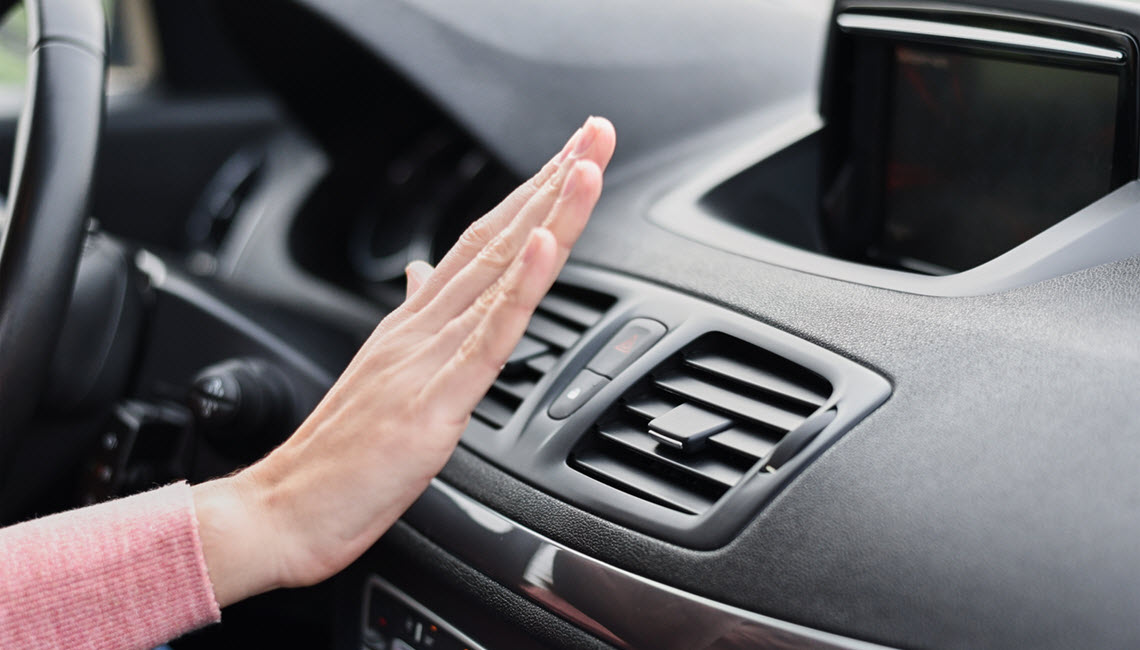
An air conditioner in a Volkswagen car works using the principle of stage separation, where air is cooled by removing both air and moisture from the air-conditioned spaces. When this isn’t working, it can make your drive miserable!
The air conditioning system in the car consists of four basic components: compressor, condenser, receiver/drier, and evaporator. The compressor sucks in warm air from outside the car and compresses it before it is passed through a condenser, receiving tube and drier. The drier ensures that no liquid enters the evaporator which is located inside the car’s passenger cabin.
Once inside, the now cooled air passes through evaporator coils where it absorbs heat to further cool itself down before it reaches its final destination; your cool and comfortable Volkswagen car [...]
]]>
An air conditioner in a Volkswagen car works using the principle of stage separation, where air is cooled by removing both air and moisture from the air-conditioned spaces. When this isn’t working, it can make your drive miserable!
The air conditioning system in the car consists of four basic components: compressor, condenser, receiver/drier, and evaporator. The compressor sucks in warm air from outside the car and compresses it before it is passed through a condenser, receiving tube and drier. The drier ensures that no liquid enters the evaporator which is located inside the car’s passenger cabin.
Once inside, the now cooled air passes through evaporator coils where it absorbs heat to further cool itself down before it reaches its final destination; your cool and comfortable Volkswagen car on a hot summer day!
Typical Causes of an Air Conditioning Malfunction
The air-conditioner of your car may cease to function properly due to the following problems:
Refrigerant leak
The cooling of your car is highly dependent on refrigerant. A refrigerant leak can cause an escape to this gas. The hose lining of the air-conditioner can have a hole at any point, or there could be a leak at the compressor, condenser, or a broken evaporator. This causes the air-conditioner to blow out air that is not very cool, or it may even blow hot air. Hence, the refrigerant must be secured at these lines as the functioning of this system depends largely on the refrigerant.
A blown fuse or bad relay
Fuses are used to send the appropriate voltage to certain parts of a vehicle to maintain their functionality. If a fuse is blown, there will be no power to the ventilation motor, thereby causing the motor to stay idle. On the other hand, a bad relay can equally cause the motor to malfunction. The relay collects the small electrical current and uses this current to generate the larger current needed to regulate the ventilation.
Blower motor damage or a bad resistor
The air that comes out of the vent of the car is pushed through by the blower. This blower looks somewhat like a normal fan but is enclosed in a chamber that directs the air. Any harm to this blower will prevent it from working and stop the air from coming out of the vent.
The blower of your Volkswagen may get weak due to age or overuse. Also, the blower resistor works with the resistor to regulate the amount of air pushing through the vent. It is usually marked as high, medium, and low, and it helps you control the air that comes out of the vent based on what you prefer.
Blocked air intake
The car has been built in a way that air enters from two areas. One of them is through the vent of the lower half of the car’s windshield. Another area through which air enters the car is from recirculated air within the cabin. If any of these air intake areas gets blocked by dirt or any clog, it will reduce the cooling of the air-conditioning system of the car.
Failed or blocked condenser
The condenser is a device that receives the refrigerant in its gaseous state and removes the heat to convert it to a liquid. If this component is blocked or damaged, it may cause warm air to come out of the vent, thereby creating discomfort.
Compressor problem or failed clutch switch
The air that comes out of the vent is compressed by the compressor after the refrigerant has been converted into gas. Any problem with this component will cause a malfunction of the entire cooling system.
Blocked expansion valve
When the expansion valve that dispenses the right amount of refrigerant to the evaporator is blocked or has failed, the air from the vent suddenly turns from cool to hot, and if moisture is present, it can cause the valve to freeze.
Allow Our Technicians at Glenwood Foreign Car to Solve Your AC Problems
The air conditioner in your Volkswagen is built to 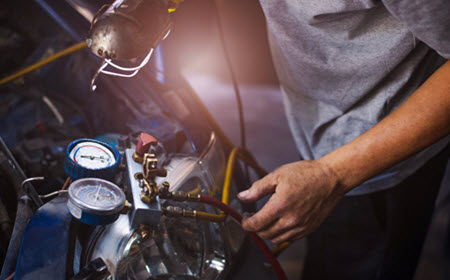 make you comfortable on your drive. At Glenwood Foreign Car, we put our customer’s comfort as a priority, which is why we ensure that their cooling system is working properly with cold air to keep you happy on your drive.
make you comfortable on your drive. At Glenwood Foreign Car, we put our customer’s comfort as a priority, which is why we ensure that their cooling system is working properly with cold air to keep you happy on your drive.
If your air conditioner is not blowing cool air, allow our expert technicians to diagnose the reason and fix the problem. We are trusted by Volkswagen owners in and around Yardley, Upper Makefield Township, Newton, and Morrisville, PA. Contact us now to get the best expert care for your Volkswagen!
]]>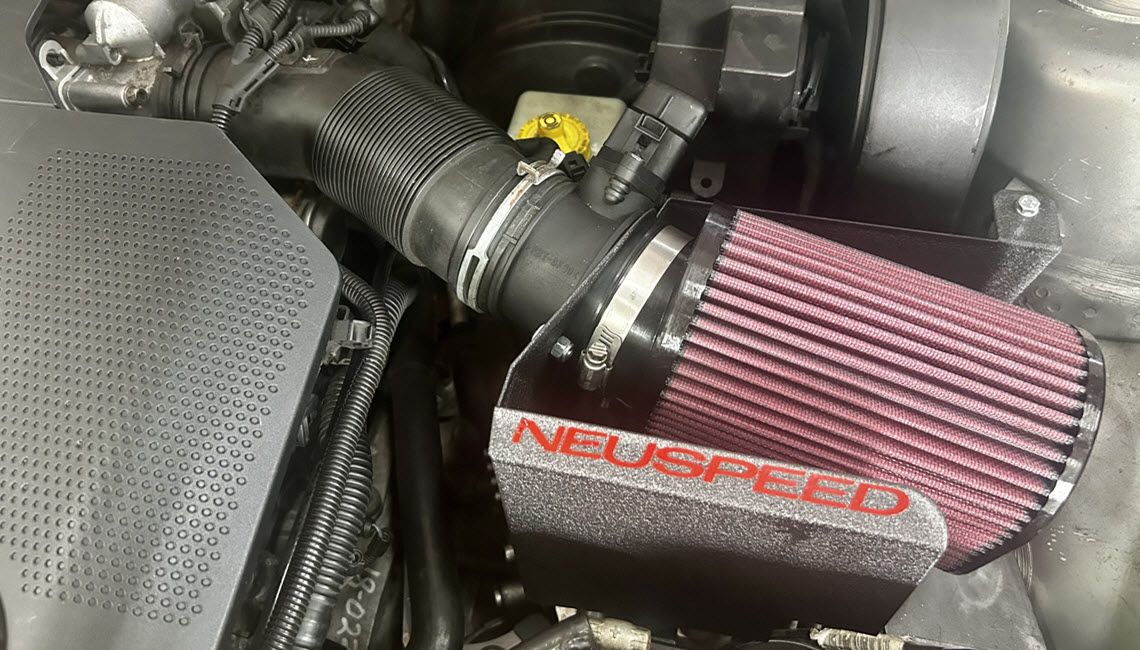
As a Volkswagen owner, you know that your car is equipped with a Mass Airflow Sensor (MAS) to help ensure optimal engine performance. You’ll want to know what happens if this vital component starts to fail, and one of the most common symptoms of a mass airflow sensor failure is when the check engine light comes on.
The check engine light is often the first indicator that something is amiss with your vehicle. It may be caused by something as simple as a loose gas cap, but in many cases it can be an indication of a more complicated issue, such as a mass airflow sensor failure. In this case, you should contact our qualified mechanic right [...]
]]>
As a Volkswagen owner, you know that your car is equipped with a Mass Airflow Sensor (MAS) to help ensure optimal engine performance. You’ll want to know what happens if this vital component starts to fail, and one of the most common symptoms of a mass airflow sensor failure is when the check engine light comes on.
The check engine light is often the first indicator that something is amiss with your vehicle. It may be caused by something as simple as a loose gas cap, but in many cases it can be an indication of a more complicated issue, such as a mass airflow sensor failure. In this case, you should contact our qualified mechanic right away to diagnose the problem and repair any necessary components. Ignoring the check engine light can lead to further damage, or even complete engine failure, so be sure to do the right thing and address any concerns promptly. Let’s look at other telltale signs of a mass airflow sensor failure.
Your VW is Stalling or Running Rough
If your VW is starting to stall or run rough, it could be a sign that the mass airflow sensor needs to be replaced. It is important to address this issue as soon as possible, in order to avoid more costly damages down the line. Replacing the sensor involves not only knowledge of where to place and how to connect it, but a precision when doing so. If the task seems daunting, consult our certified VW mechanics at Glenwood Foreign Car. With our expertise and experience, we can diagnose and resolve the issue quickly. Don’t let your car’s performance suffer!
Poor Fuel Economy
Another symptom of a mass airflow sensor failure is poor fuel economy. This vital engine component influences the air-to-fuel ratio, which in turn affects fuel combustion efficiency. In short, when the mass airflow sensor isn’t working properly, your vehicle consumes more gasoline than it should and you can expect to see a noticeable decrease in gas mileage.
It is recommended that any suspected problems with your vehicle’s mass airflow sensor be checked out immediately by our trained technician for swift resolution before any further damage occurs.
Your VW is Hesitating or Surging
If your car isn’t accelerating smoothly and instead seems to hesitate or surge within speed, it may be an early warning sign of a failing mass airflow sensor. A MAF sensor measures intake air volume for fuel adjustments, so when it fails or is performing poorly, your Volkswagen’s performance will suffer from issues with acceleration, power, and idle.
Even worse, a damaged MAF sensor can cause fouled spark plugs, or even inhibit the vehicle from starting. It’s important to diagnose this problem as soon as possible in order to avoid other damage that can occur if left unchecked.
Black Smoke from the Exhaust Pipe
Black smoke coming from the exhaust pipe is never a good sign, and can point towards larger engine problems. One of the biggest issues that black smoke signifies is an issue with the mass airflow sensor. This component detects air intake while the car is running and helps regulate engine performance, so any malfunction here can be disastrous.
Replacing or fixing this sensor quickly is essential to prevent serious damage elsewhere in the engine, so if you experience any black smoke from your exhaust pipe it’s advisable to get the problem checked out by our mechanics as soon as possible.
Glenwood Foreign Car for your Mass Airflow Sensor Problems
If you notice any of these symptoms, it’s 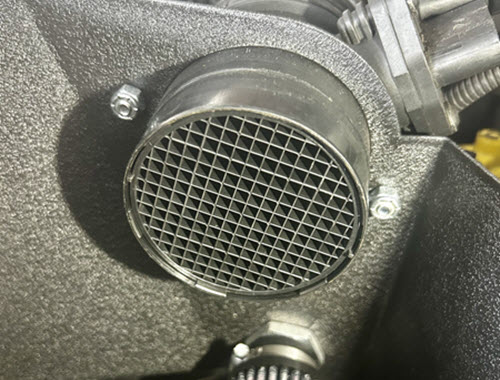 important to bring your VW to our expert mechanics as soon as possible to have the mass airflow sensor checked. A mass airflow sensor failure can cause serious problems with your engine, so it’s best not to ignore these warning signs.
important to bring your VW to our expert mechanics as soon as possible to have the mass airflow sensor checked. A mass airflow sensor failure can cause serious problems with your engine, so it’s best not to ignore these warning signs.
If you need help finding a qualified mechanic in your area, we can help! Our team of experts are ready and waiting to service your Volkswagen car or SUV. We have years of experience with foreign vehicles, like your VW. It’s our pleasure to maintain your VW so you can be confident driving it each time you start the engine. Visit us from nearby Upper Makefield Township, Yardley, Newtown, and Morrisville, PA.
]]>
Though airbags have been standard in vehicles for many years, their design and function are still not completely understood by the general public. Airbags are designed to deploy in the event of a collision, using a small explosive charge to inflate a fabric bag. This bag provides cushioning for the occupants of the vehicle, helping to prevent serious injuries.
Though airbags are generally considered to be safe and reliable, there have been some instances of airbag malfunction, and during this event, your airbag light may illuminate on your Volkswagen’s dashboard. As a result, many VW owners are concerned about the safety of their vehicle. However, it is important to remember that airbag malfunctions are rare, and that VW’s are still considered to be some of the [...]
]]>
Though airbags have been standard in vehicles for many years, their design and function are still not completely understood by the general public. Airbags are designed to deploy in the event of a collision, using a small explosive charge to inflate a fabric bag. This bag provides cushioning for the occupants of the vehicle, helping to prevent serious injuries.
Though airbags are generally considered to be safe and reliable, there have been some instances of airbag malfunction, and during this event, your airbag light may illuminate on your Volkswagen’s dashboard. As a result, many VW owners are concerned about the safety of their vehicle. However, it is important to remember that airbag malfunctions are rare, and that VW’s are still considered to be some of the safest and most dependable cars on the road. Let’s take a closer look at the airbag malfunction light.
Components of an Airbag Works
Airbags are one of the most important safety features in modern cars. An airbag consists of three parts:
- The sensor: When your vehicle comes to an abrupt halt as the result of a collision, the sensor registers this drastic change in speed and triggers the inflation system.
- The inflation system: The inflation system creates a chemical explosion which produces nitrogen gas. The nitrogen gas then fills the airbag itself.
- The bag: As soon as the person’s head hits the airbag, the airbag begins to deflate, which protects the person’s head from bouncing directly off the airbag and causing more injury to the head and neck.
These components must be in top working condition or an airbag malfunction is possible. The entire process happens in less than a second, but it is incredibly important in reducing the amount of injury caused to the driver or passenger in the event of a car accident.
Reasons for Airbag Malfunctions
In the more recent past, Volkswagen have had to recall tens of thousands of their models due to airbag malfunction issues. These issues were largely to blame on the independent manufacturers of the airbag and their faulty design, there are many reasons why an airbag might malfunction which will trigger the light on your dashboard.
- Faulty sensor: If a sensor is damaged or disconnected, the airbag might not deploy even in the event of a collision.
- Damaged parts or electrical problems: If the airbag sensors are not receiving the correct amount of power, they may not trigger the airbag to deploy. This can occur if there is a problem with the wiring, a loose connection, or a problem with the airbag module In some cases, an electrical malfunction may also cause the airbag to deploy unexpectedly, which can pose a serious risk to occupants.
- Lack of proper replacement: Additionally, if the airbag itself is damaged, it might not deploy properly, or might even deploy at the wrong time.
As a result, it’s important for VW to ensure that all airbags are functioning properly before putting their vehicles on the road. If your airbag light indicates a malfunction, it is important to bring it to our shop to have our experienced VW experts inspect its components for malfunction. We will find the root cause and share our findings with you to solve the problem quickly.
Your Volkswagen Experts: Glenwood Foreign Car
To ensure that your airbag is functioning properly, 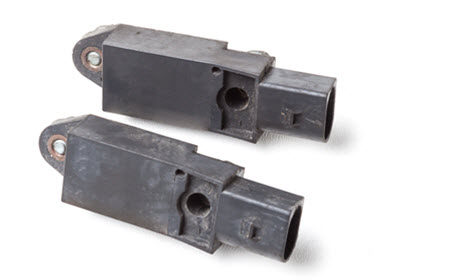 the best place to bring your Volkswagen is Glenwood Foreign Car. We are easily accessible from the areas of Upper Makefield Township, Yardley, Newtown, and Morrisville, PA.
the best place to bring your Volkswagen is Glenwood Foreign Car. We are easily accessible from the areas of Upper Makefield Township, Yardley, Newtown, and Morrisville, PA.
Our auto service technicians are skilled at quickly diagnosing and pinpointing solutions to problems, saving you valuable time and money. We have also partnered with Bosch Service, the world’s largest parts supplier, as an independent service center. This new partnership provides our customers peace of mind that we have the standards in place to service your vehicle and use of Bosch auto parts where available.
When you bring your VW to us at your scheduled appointment time, one of our trained and certified technicians will perform a thorough diagnostic and inspection of your vehicle. Once they properly identify the components that need replacing, high-quality parts are used in the replacement. You and your VW will be back on the road quickly and you can drive with confidence.
]]>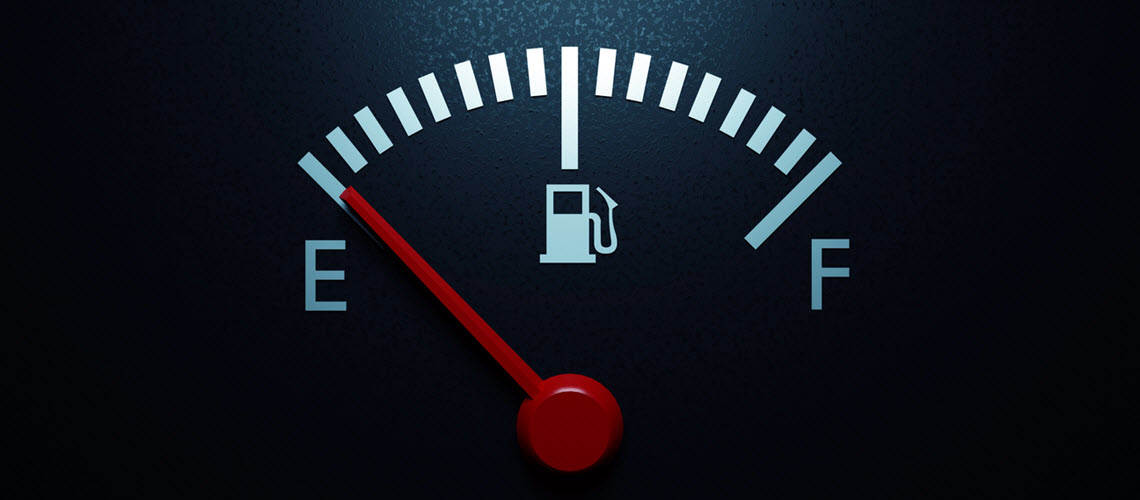
Volkswagens are known for their efficiency on the road and are hailed for their ability to take you a long distance without needing to refuel often. However, given the fact that gas costs are only going higher, you’ll want to increase your VW’s fuel efficiency. As a result, you must be mindful of your vehicle’s mileage. Of course, you have no control over the price of gas, but you may incorporate certain tips into your daily routine to get the most out of the fuel in your car’s tank. That’s why we’ve compiled this list of helpful hints to assist you in improving the fuel efficiency of your vehicle so that you can enjoy your ride to the fullest.
Easy Ways To Improve Your Volkswagen’s Fuel Efficiency [...]]]>
Volkswagens are known for their efficiency on the road and are hailed for their ability to take you a long distance without needing to refuel often. However, given the fact that gas costs are only going higher, you’ll want to increase your VW’s fuel efficiency. As a result, you must be mindful of your vehicle’s mileage. Of course, you have no control over the price of gas, but you may incorporate certain tips into your daily routine to get the most out of the fuel in your car’s tank. That’s why we’ve compiled this list of helpful hints to assist you in improving the fuel efficiency of your vehicle so that you can enjoy your ride to the fullest.
Easy Ways To Improve Your Volkswagen’s Fuel Efficiency
If you want to save your money, here are some useful tips that you need to keep in mind when it comes to improving the fuel efficiency of your car.
- Avoid Excessive Speeding: While driving at high speeds, especially when on a road trip may seem like a good idea to get you there faster, remember that exceeding 70 mph will quickly deplete your gasoline tank. So, whether you’re on a road trip or just driving to work, always adhere to the set speed restrictions in your vicinity.
- Keep An Eyes On Filters: Your car’s acceleration time is directly affected by a dirty filter. Maintaining clean filters can enhance your car’s acceleration time by up to 11%. So, make sure you install a functional air filter in order to protect your Volkswagen’s engine from debris, dirt, and other contaminants in the air.
- Appropriate Tire Pressure: Always keep an eye on your car’s tire pressure. Make sure they’re neither over- or under-inflated, as this can reduce your predicted fuel efficiency. So, if you want to improve your fuel consumption, keep them filled to the proper pressure at all times.
- Remove Excessive Weight: Sometimes people leave heavy items in the trunk or the back of their cars and just forget about them which isn’t good when it comes to your car’s fuel consumption as heavy items make your car work harder than it normally does. Don’t forget to keep your trunk clean of items like boards, bikes, shovels, and other unnecessary equipment when they aren’t needed.
- Use Lightweight Wheels: By using lightweight wheels, such as aluminium or alloy, the weight of your car lessens significantly making it more fuel-efficient. Though aluminium wheels are a bit costly they can save you a lot of money, in terms of fuel economy, in the long run.
- Basic Maintenance: Keep a proper check on the recommended maintenance of your Volkswagen’s model by getting it serviced regularly, because negligence in such matters will cause your vehicle to consume up to 50% more fuel than it usually does. Pumping up your tires, changing the oil, air filters, and sensors regularly can help improve the consumption of your fuel in the long run.
- Reduce Idling: Reduce idling while not in use, as it wastes fuel and does not get you anywhere. Furthermore, idling your car consumes more fuel than restarting it so it’s better to keep driving as it keeps your engine warmed up, thus resulting in less fuel exhaustion.
- Use Removable Roof Rack: Remove any external carrying equipment from your vehicles, such as roof racks or bicycle racks. Your car’s aerodynamic drag is increased by a loaded or even empty roof rack, making it work harder and consuming more fuel than usual. It’s a smart deal to install a removable roof track because you can only use it when it’s needed.
- Take Long Trips: Short travels, regardless of the season, cause your car to utilise more fuel. Thus, making a single long trip is always a better option since it allows your drivetrain to reach its most efficient operating temperature.
Glenwood Foreign Car For Your Volkswagen
Since 1997, Glenwood Foreign Automobile has 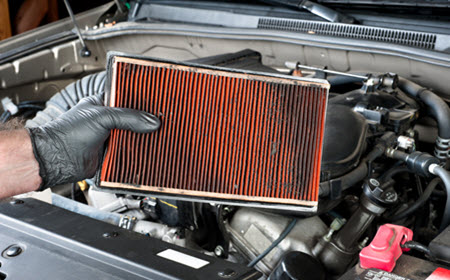 provided quick car services in Upper Makefield Township, Yardley, Newtown, and Morrisville, Pennsylvania. Because of their years of knowledge, our professional technicians are quick to diagnose any problems your automobile may be having. So give us a call today and set up an appointment with us so that we can help you in the best way possible.
provided quick car services in Upper Makefield Township, Yardley, Newtown, and Morrisville, Pennsylvania. Because of their years of knowledge, our professional technicians are quick to diagnose any problems your automobile may be having. So give us a call today and set up an appointment with us so that we can help you in the best way possible.
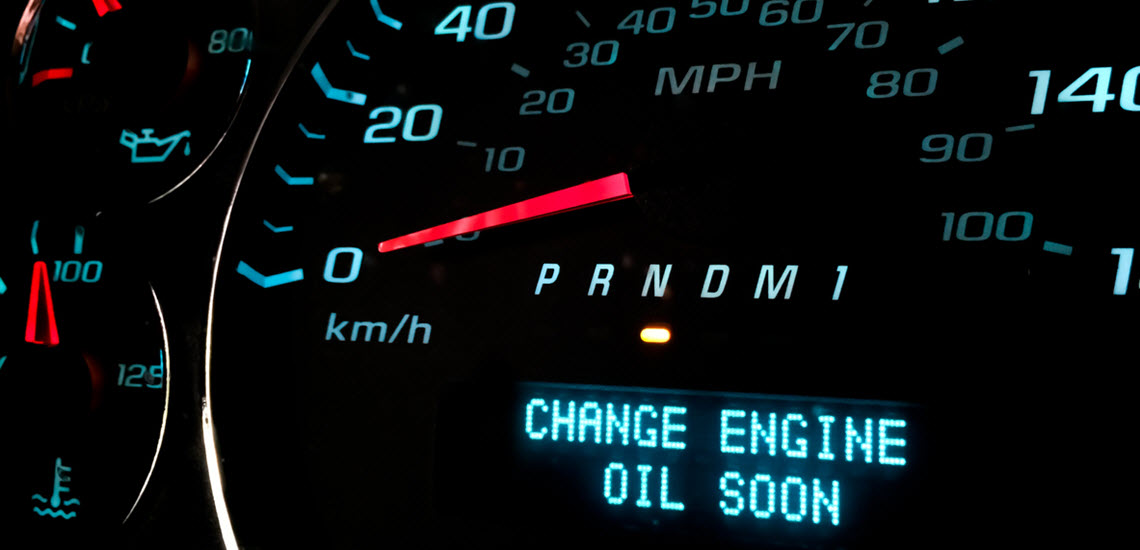
Volkswagens are affordable automobiles that are efficient, dependable, and durable. Like every vehicle, Volkswagens experience problems. Oil sludge formation in the engine is one of the most prevalent issues we find in Volkswagens. Oil sludge accumulation is a problem that can affect your car’s performance, dependability, and longevity. Let’s take a quick run-down of how to diagnose a Volkswagen oil sludge problem, the causes of this problem, the effects on your vehicle, and how to prevent it.
Oil Sludge Formation DiagnosisOil sludge is also known as engine sludge, and it is caused by oxidation or contaminants in a Volkswagen’s engine oil. Oil sludge is composed of a mixture of old oil and impurities. When this mixture stays for a long time, it hardens and forms [...]
]]>
Volkswagens are affordable automobiles that are efficient, dependable, and durable. Like every vehicle, Volkswagens experience problems. Oil sludge formation in the engine is one of the most prevalent issues we find in Volkswagens. Oil sludge accumulation is a problem that can affect your car’s performance, dependability, and longevity. Let’s take a quick run-down of how to diagnose a Volkswagen oil sludge problem, the causes of this problem, the effects on your vehicle, and how to prevent it.
Oil Sludge Formation Diagnosis
Oil sludge is also known as engine sludge, and it is caused by oxidation or contaminants in a Volkswagen’s engine oil. Oil sludge is composed of a mixture of old oil and impurities. When this mixture stays for a long time, it hardens and forms a sticky gel that adheres to the engine parts. This muck eventually obstructs the flow of oil and puts more strain on the radiator and cooling system.
When you begin to see sludge or sticky/thickened oil in your Volkswagen, it’s a potential oil sludge that needs to get cleaned up. It is easy to spot engine sludge. It has a thicker texture than ordinary oil and is generally found in clusters. If you suspect that your Volkswagen has oil sludge accumulation, you should have it checked out by an expert. Our mechanics at Glenwood Foreign Car have the right tools and equipment to solve your oil sludge problem.
The engine of a Volkswagen cannot work perfectly unless it is properly lubricated with oil. Moving parts will encounter friction and may seize up when there is a lack of oil. However, when this same oil deteriorates, it begins to form sludge in the engine.
The first indication is usually a buildup of oil sludge on top of the engine. It also accumulates on the valve cover and the oil pan. When sludge forms, oil can no longer lubricate the moving components.
Common Reasons for Engine Oil Sludge Formation
- Poor Maintenance: Since oil serves as a lubricant in the engine and smooths the operation of other components, maintenance must be performed regularly. One of the ways to do this is to have a trusted service center maintain your Volkswagen engine oil to avoid the formation of oil sludge. When service is delayed or postponed, there is a significant likelihood that sludge deposits may build since the oil will not be able to flow freely.
- Use of substandard oil: It is best to use engine oil suggested by the manufacturer while doing servicing. The manufacturer makes this simple by specifying the type of oil that should be used in the engine. At Glenwood Foreign Car, we are committed to recommending the best engine oil for your particular car brand and model.
- Use of low-quality fuel: Using a low-quality fuel can cause carbon buildup, or engine sludge, which suffocates the engine and causes havoc with the fuel system.
- Prolonged idle: Idling occurs when the engine is started yet the vehicle is motionless for a long time. An example is when caught in traffic, or waiting for someone in your car with the engine running.
Volkswagen Oil Sludge Buildup Prevention Tips
When you start the car, look for the check engine light and the oil change warning light on the dashboard. Both might signal that the engine oil needs to be changed. Also, read the user’s handbook that came with your automobile for directions on when to change the oil and what sort of oil to use.
As much as possible, avoid stop-and-go driving. To reduce motor oil sludge accumulation, walk or bike short distances. If the gauge on the dashboard indicates that the vehicle is heating up, let your mechanic check for oil sludge. It is never a good practice to add engine oil if the oil pressure drops. If the oil pressure light is lit, have it examined or replaced entirely.
Cheap oil may save you money, but it generally lacks the additives required to protect your engine. It may also have a greater level of contaminants, causing it to degrade prematurely. This will lead to the accumulation of oil sludge. You’ll end up having to pay more money since you’ll have to replace your oil more frequently.
Oil sludge may be prevented by changing the oil regularly. Dirty oil and filters can create a variety of problems. The most important tip for preventing oil sludge formation is regular maintenance of your Volkswagen by a professional.
Glenwood Foreign Car Will Remove the Oil Sludge
Our Volkswagen oil change technicians at Glenwood 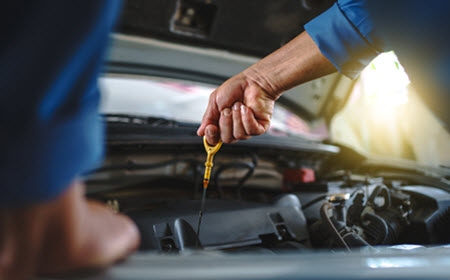 Foreign Car can remove the oil sludge from your car’s engine. If you feel you have buildup or are having any other problems, please contact us right away. Using your vehicle without fixing the oil sludge problem might lead to more serious issues, such as engine failure. Please contact us as soon as possible to set up an appointment. You can reach us at Upper Makefield Township, Yardley. We are happy to service the Yardley, Newtown, and Morrisville, PA neighborhoods, so give us a call today!
Foreign Car can remove the oil sludge from your car’s engine. If you feel you have buildup or are having any other problems, please contact us right away. Using your vehicle without fixing the oil sludge problem might lead to more serious issues, such as engine failure. Please contact us as soon as possible to set up an appointment. You can reach us at Upper Makefield Township, Yardley. We are happy to service the Yardley, Newtown, and Morrisville, PA neighborhoods, so give us a call today!
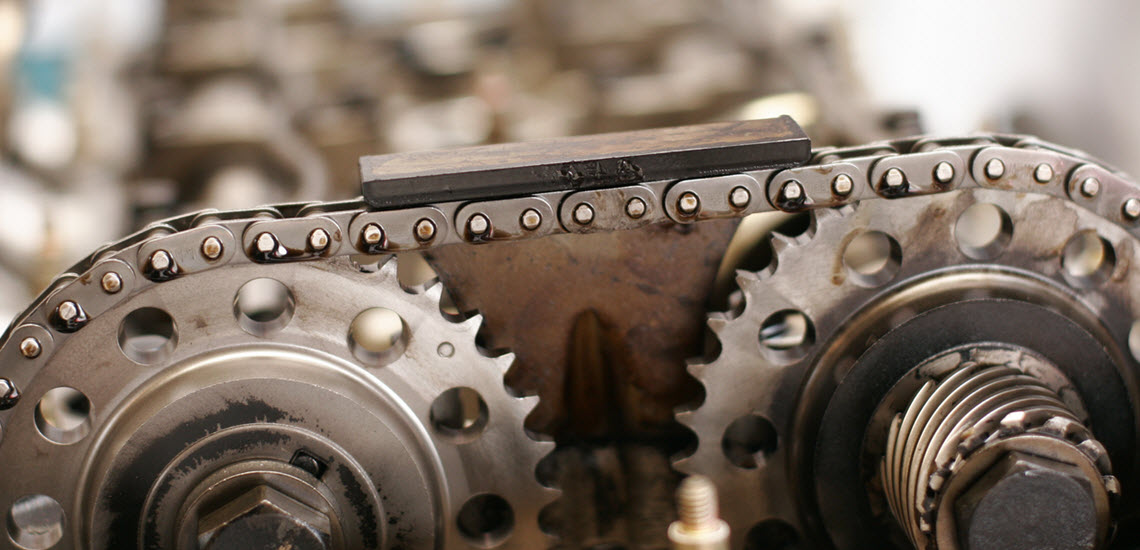
The timing chain is a crucial part of any combustion engine, and if it fails, it can cause catastrophic damage to your vehicle. It is common for Volkswagen cars to suffer from premature timing chain failure.
Timing chains, also known as timing belts, are built in the front of the engine compartment. They link the camshaft and the crankshaft together. In short, it controls the act of combustion in the engine.
If you own a Volkswagen, it’s wise to schedule regular preventative maintenance and inspections. It’s important to note that the timing chain provides engine power through the quick, centrifugal force applied to the components. Through this repetitive action, the chain can get worn out if it isn’t inspected on a regular basis. The chain is also [...]
]]>
The timing chain is a crucial part of any combustion engine, and if it fails, it can cause catastrophic damage to your vehicle. It is common for Volkswagen cars to suffer from premature timing chain failure.
Timing chains, also known as timing belts, are built in the front of the engine compartment. They link the camshaft and the crankshaft together. In short, it controls the act of combustion in the engine.
If you own a Volkswagen, it’s wise to schedule regular preventative maintenance and inspections. It’s important to note that the timing chain provides engine power through the quick, centrifugal force applied to the components. Through this repetitive action, the chain can get worn out if it isn’t inspected on a regular basis. The chain is also in an environment of intense and consistent heat, which can stretch it out and cause it to malfunction. Here are some tips below that can help you determine if your Volkswagen timing chain is failing earlier than expected.
Components Associated with the Timing Chain
- Camshaft components
- Cylinder head valves
- Crankshaft components
- Cylinder head valves
- Rods
- Pistons
- Gears
- Timing Chain tensioner
- Pulleys
Factors That May Increase the Likelihood of Timing Chain Failures
It’s natural for timing chains to eventually fail on your Volkswagen, especially if the vehicle is used in your everyday commute. Like most vehicle components, timing chains fail with increased use. The more worn out the timing chain is, the more dangerous it can be, most notably, when the car is traveling at higher speeds. Here are some related factors that increase the chance of premature component failure:
- Your daily driving conditions, whether it’s bumper-to-bumper traffic or interstate
- The mileage of the car
- Your driving habits, such as braking or accelerating quickly
- Irregular maintenance schedule
- The climate and the elements your vehicle is subjected to, like heavy snow and rain
- The age of the vehicle
Performance Issues Related to Timing Chain Failure
Volkswagens are known for premature timing chain failure. The Volkswagen manufacturer has acknowledged this problem, but even through all the legal battles, they’ve done little to remedy the situation.
Unfortunately, the problem only seems more likely to manifest as the car ages and the mileage gets higher. If the problem isn’t addressed promptly, a timing chain malfunction can lead to many problems. Issues such as frequent warning lights, problems starting the vehicle, general performance issues, or catastrophic engine damage come to mind.
Ignoring these signs could mean hefty bills. If your timing chain snaps, it could ultimately lead to permanent damage, which would make you unable to drive the vehicle. You must take note of the way your vehicle drives so that you can detect any changes in the timing chain’s operation. It’s critical to follow the maintenance guidelines in your VW owner’s manual and schedule an appointment with a Volkswagen professional.
Your timing chain may be close to failing if you notice these signs:
- Issues with steering or the car entering limp mode
- Difficulty generating enough engine power
- Engine misfiring
- Poor engine oil quality
How to Stay Ahead of the Curve
Maintaining proper records and tracking important milestones of your vehicle’s maintenance schedule is paramount to the longevity of your Volkswagen. Have your VW’s timing chain 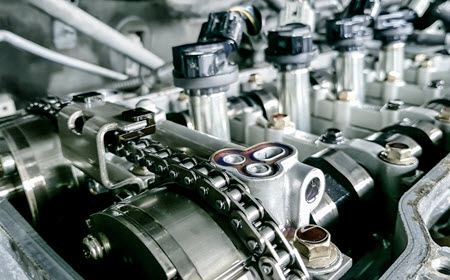 and tensioner routinely inspected. Schedule regular oil changes, which can prevent contamination and metal particles damaging the timing chain. If you notice your car behaving oddly, don’t procrastinate, these issues could be related to premature timing chain failure.
and tensioner routinely inspected. Schedule regular oil changes, which can prevent contamination and metal particles damaging the timing chain. If you notice your car behaving oddly, don’t procrastinate, these issues could be related to premature timing chain failure.
We’ve been servicing cars at Glenwood Foreign Car since 1977. Our auto mechanics strive to provide excellent, professional service. Our staff repairs all makes of foreign cars such as Porsche, Audi, and Volvo using industry standards and quality parts. We are a Bosch Certified Service Center, and we work diligently to make our customers our #1 priority.
It’s our honor to serve the Upper Makefield Township, Yardley, Newtown, and Morrisville, PA areas, so please call to schedule an appointment with us. Our shop is conveniently located on the corner of Trenton Avenue and Woolston Drive in Morrisville, PA. We look forward to serving you and thank you for allowing Glenwood Foreign Car to maintain and service your vehicle.
]]>
Many years ago, when the automatic window first debuted in vehicles, it was a luxury feature. Now, all vehicles have automatic windows. It is a feature that car owners come to expect. The automated window system will either be mechanical or electrical. Both are prone to malfunction or failure due to a few causes. The most common part of the window system to fail is the window regulator.
The window regulator is responsible for rolling the windows up or down when you push the power button. In most newer Volkswagens, the window regulator is a part that is often combined with the window motor. So when the window regulator begins to fail, just know that the entire assembly will need to be replaced.
When the window regulator begins to [...]
]]>
Many years ago, when the automatic window first debuted in vehicles, it was a luxury feature. Now, all vehicles have automatic windows. It is a feature that car owners come to expect. The automated window system will either be mechanical or electrical. Both are prone to malfunction or failure due to a few causes. The most common part of the window system to fail is the window regulator.
The window regulator is responsible for rolling the windows up or down when you push the power button. In most newer Volkswagens, the window regulator is a part that is often combined with the window motor. So when the window regulator begins to fail, just know that the entire assembly will need to be replaced.
When the window regulator begins to fail, there are warning signs to avoid complete failure. Once complete failure occurs, you will be stuck with either a window that will not go back up or a window that will not go down. Both situations are not ideal for your safety and comfort. Knowing what signs to look for that point to window regulator failure will help you deal with the issue quickly.
If It Takes Multiple Presses for the Window to Work
The first sign to be aware of that indicates window regulator failure is when you have to press the window power button multiple times before it responds. In a properly-operating window, all it takes is one touch of the button for the window to roll up or roll down, depending on your instruction.
When the button is pressed, the window regulator should be automatically engaged. If you find yourself pressing the window button multiple times before you get a response then you know that there is an issue with the window regulator.
It is important to note here that this sign can also point to an issue with the power switch itself. The best way to determine the correct issue is by bringing your Volkswagen into your trusted automotive shop.
If the Window Speed is Slower or Faster than Normal
The power windows of your Volkswagen were specifically and carefully designed to ensure that the windows go a certain speed. This precisely calculated speed is set in place to make sure the windows do not break as they are rolled up or down. If the speed is too fast, then they run the risk of breaking or shattering. The same can also be said for when the speed is too slow. It is less likely that the windows will break when going up too slow, but you will run the risk of the window getting stuck open. If the speeds are fluctuating, they are signs of window regulator failure.
Clicking Noises Coming from the Door
One last sign is clicking noises coming from the door as you press the button to raise or lower the window. The common cause of the clicking noises is debris that is caught between the window and the window regulator. The piece of debris most likely got into the door panel when previously rolling down the window.
At this point, the only way to remove the debris is by having your trusted technician remove the door panel. The sooner this is done the better because this means less damage to the window regulator. If you continue to try to force the window, it could shatter or cause more expensive repairs.
Dealing with the Window Regulator Failure
When you notice any of the above-mentioned  signs of window regulator failure, the best thing to do is to bring your Volkswagen into your trusted mechanics at Glenwood Foreign Car. We are easily accessible from the areas of Upper Makefield Township, Yardley, Newtown, and Morrisville, PA.
signs of window regulator failure, the best thing to do is to bring your Volkswagen into your trusted mechanics at Glenwood Foreign Car. We are easily accessible from the areas of Upper Makefield Township, Yardley, Newtown, and Morrisville, PA.
When you bring your Volkswagen in at your previously-scheduled appointment time, one of our certified technicians will use the latest diagnostic tools to determine the exact cause of window regulator failure. High-quality parts are then used to replace the window regulator. You will be back on the road before you know it, with a window regulator you can rely on.
Call us today for all your Volkswagen service and repair needs. We look forward to earning your trust and patronage.
]]>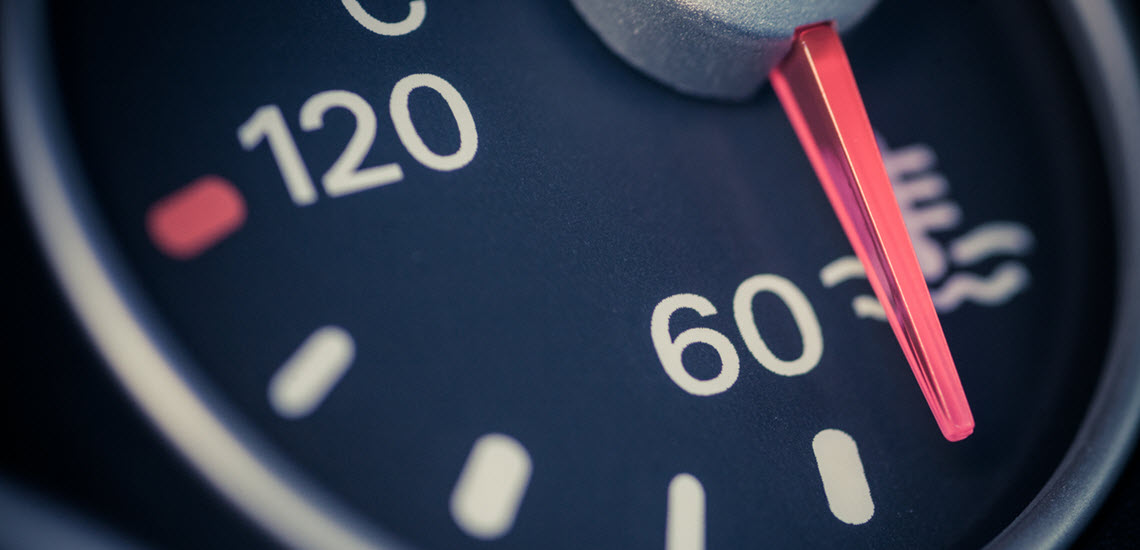
Volkswagens are world-renowned for their high standards in luxury, comfort, and safety, but unfortunately, they are not infallible. Just like any other car, they occasionally will need part replacements and repairs.
Coolant temperature sensors, in particular, are quite important to maintain a smooth and worry-free driving experience. Regular replacements are necessary. One common question that Volkswagen drivers ask is when these sensors should be replaced.
Today, we are going to answer this question once and for all so you can create a maintenance schedule that keeps your German-engineered vehicle in optimal shape.
The Function and Importance of the Coolant Temperature SensorThe coolant temperature sensor (or CTS) in a Volkswagen provides a steady stream of data to the engine control unit concerning coolant flow and temperature. This information [...]
]]>
Volkswagens are world-renowned for their high standards in luxury, comfort, and safety, but unfortunately, they are not infallible. Just like any other car, they occasionally will need part replacements and repairs.
Coolant temperature sensors, in particular, are quite important to maintain a smooth and worry-free driving experience. Regular replacements are necessary. One common question that Volkswagen drivers ask is when these sensors should be replaced.
Today, we are going to answer this question once and for all so you can create a maintenance schedule that keeps your German-engineered vehicle in optimal shape.
The Function and Importance of the Coolant Temperature Sensor
The coolant temperature sensor (or CTS) in a Volkswagen provides a steady stream of data to the engine control unit concerning coolant flow and temperature. This information will be sent to the temperature gauge. As a result, drivers will be able to monitor these temperatures and know when it is unsafe to drive.
A bad sensor will cause your Volkswagen to react to false data and will, in turn, deregulate several crucial functions, including fuel consumption.
Warning Signs of Coolant Temperature Sensor Failure
You should be able to recognize the signs of coolant temperature sensor failure when it happens in your Volkswagen. This will allow you to exercise proper caution when driving and know when to take it in for replacement.
One of the first things that you may notice is a decrease in gas mileage. Most drivers have a routine for fuel refills that they stick to. They know, on average, how far they can go before a trip to the gas station is necessary. Pay close attention to any change in that routine. If you find yourself having to fill up the fuel tank more often than usual, this is a warning sign that something may be wrong with your car.
A more obvious sign of coolant temperature sensor failure is the overheating of your Volkswagen’s engine. Without the sensor to give you accurate temperature data, you may push the car past its limits or be unaware of failure until the damage is more extensive. In some cases, black soot will emanate from the engine.Finally, you may notice that your Check Engine Light is illuminated. This happens for several reasons, but in conjunction with the other symptoms, a failed coolant temperature sensor is likely the culprit.
Consequences of Driving With a Failing Coolant Temperature Sensor
One tiny part of the engine cooling system, especially a sensor, may not seem important to fix right away to some drivers. However, ignoring the issue is a big mistake.
Driving with a failing sensor is unsafe and at the very least, it may result in expensive damage to other parts of your Volkswagen. When your engine overheats, it warps and breaks cylinder heads and gaskets and can completely break down your engine block.
Being without your car for a few hours may be inconvenient, but with damage this extensive, you could be without it for much longer. Save yourself the frustration and money; as soon as you recognize the warning signs, get your Volkswagen to auto experts.
Why Coolant Temperature Sensors Fail
Coolant temperature sensor failure is fairly common in Volkswagens. When the maintenance schedule for the engine cooling system is neglected, your sensor can become corroded and break down over time. That is why it’s vital that you know when these sensors should be replaced.
Recommended Replacement Time for Coolant Temperature Sensors in Volkswagen
It is recommended that you have your coolant 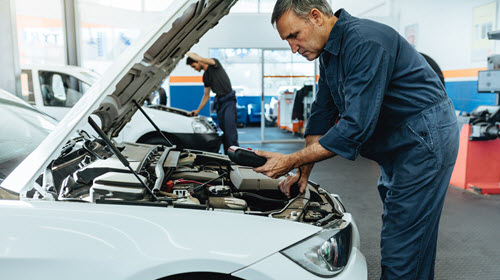 temperature sensor replaced every 100,000 miles. This is dependent on how well you stick to your maintenance schedule. If you neglect maintenance, the sensor may fail earlier than expected.
temperature sensor replaced every 100,000 miles. This is dependent on how well you stick to your maintenance schedule. If you neglect maintenance, the sensor may fail earlier than expected.
If you suspect that your Volkswagen’s sensor is in need of replacement, the highly qualified auto technicians at Glenwood Foreign Car are happy to give your car the best quality care in the area. Our Bosch Certified Service Center is within convenient distance for drivers in the Upper Makefield Township, Yardley, Newtown, and Morrisville areas of PA.
At Glenwood Foreign Car, we pride ourselves on dealership quality service without dealership prices. Trust the automotive technicians with several decades of experience with your repair and replacement needs.
]]>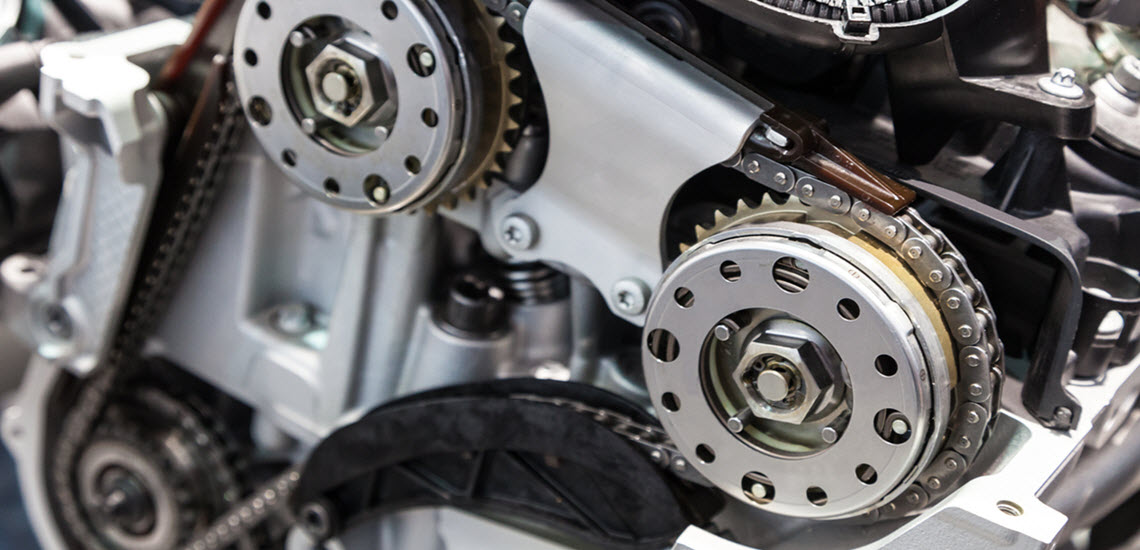
There are a number of components that work together to keep your Volkswagen performing at its best. Some of these are the larger, more commonly known pieces, such as an alternator or transmission. Others are smaller, and while they seem a bit more insignificant, they are just as important to the operation of your automobile. One such component is the camshaft seal.
This small, round seal is primarily made of rubber and is located in the cylinder head. It fits in between the timing covers and the camshaft. It is composed of durable, high-quality rubber for longevity reasons. The camshaft seal carries the responsibility of keeping the engine oil contained. If or when the camshaft seal becomes defective, oil may leak out. Overall, this can wreak havoc on [...]
]]>
There are a number of components that work together to keep your Volkswagen performing at its best. Some of these are the larger, more commonly known pieces, such as an alternator or transmission. Others are smaller, and while they seem a bit more insignificant, they are just as important to the operation of your automobile. One such component is the camshaft seal.
This small, round seal is primarily made of rubber and is located in the cylinder head. It fits in between the timing covers and the camshaft. It is composed of durable, high-quality rubber for longevity reasons. The camshaft seal carries the responsibility of keeping the engine oil contained. If or when the camshaft seal becomes defective, oil may leak out. Overall, this can wreak havoc on the engine, as a proper amount of oil is needed to keep the metal components lubricated and free from damaging friction.
Signs of a Potential Camshaft Seal Leak
The location of the seal makes it extremely difficult to visually inspect the component and its condition. However, there are a few warning signs that can point to a defective seal.
Smoke coming from under the hood
Oil that is leaking from the camshaft can drip down onto your exhaust pipe or manifold. These drips will burn instantly on contact and result in plumes of smoke coming from the engine. It may also cause an odor of smoke or burning. The actual amount of smoke or odor will depend on the size of the leak.
Visible signs of a leak
When the seal begins to break down and causes a leak, you will visibly see oil on the rear part of the engine. These traces can be found below the valve cover as well as around the corners and edges of the motor.
Low engine oil level
A slow or small leak is still a problem and can have serious consequences for your engine. A motor that is low on oil can overheat or suffer a breakdown due to improper lubrication. In extreme situations, the engine can blow due to a lack of oil. Then, the entire motor may need to be replaced.
Difficulty starting your car
Again, low oil can compromise the performance of your Volkswagen’s engine in a number of ways. One of these may be how easy it is to start the automobile.
A malfunctioning, cracked, or defective seal may not have an immediate impact on the performance of your VW, but it certainly will affect how reliable it is. Leaking oil results in an engine with poor or improper lubrication, thus leading to a number of issues. The oil can also collect on the timing belt in your vehicle, causing devastating contamination.
Failure of the Camshaft Seal
On average, the camshaft seal in your automobile should last around 80,000 miles. However, there are a few variables that can affect how long the seal may last. These include:
- constant heat from the engine
- normal wear and tear
- excessive amount of pressure from the crankcase
- hardening of the seal over time
If you suspect a camshaft seal issue, it is best to consult a trusted professional. The procedure to inspect, change, or fix the seal is very complex and should be left to someone with plenty of experience.
Go with the Pros at Glenwood Foreign Car
Serving customers since 1977, Glenwood Foreign Car is 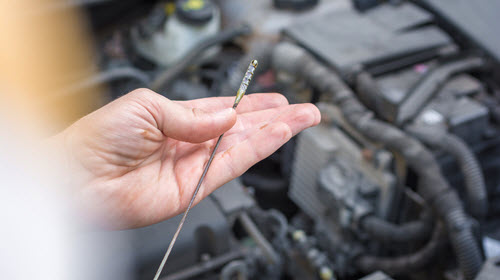 the expert European automotive service center in the region. We serve the residents of Upper Makefield, Township, Yardley, Newtown, and Morrisville, PA areas. We offer dealership knowledge and experience without the dealership prices. At Glenwood, we design custom service plans to fit the specific needs of your Volkswagen.
the expert European automotive service center in the region. We serve the residents of Upper Makefield, Township, Yardley, Newtown, and Morrisville, PA areas. We offer dealership knowledge and experience without the dealership prices. At Glenwood, we design custom service plans to fit the specific needs of your Volkswagen.
Our team utilizes only the latest and most advanced diagnostic systems as well as innovative technology to address the issues you’re having with your vehicle. We are also a Bosch service center, giving us access to the world’s largest base of equipment and parts. Not only do we provide a comprehensive list of services, we offer a 2-year/24,000-mile warranty on purchases from our location. Foreign automobiles are our specialty, and we understand what makes each model unique. As a customer, you come first, and we want to provide quality, dependable, reliable service each time you visit. Call Glenwood Foreign Car today.
]]>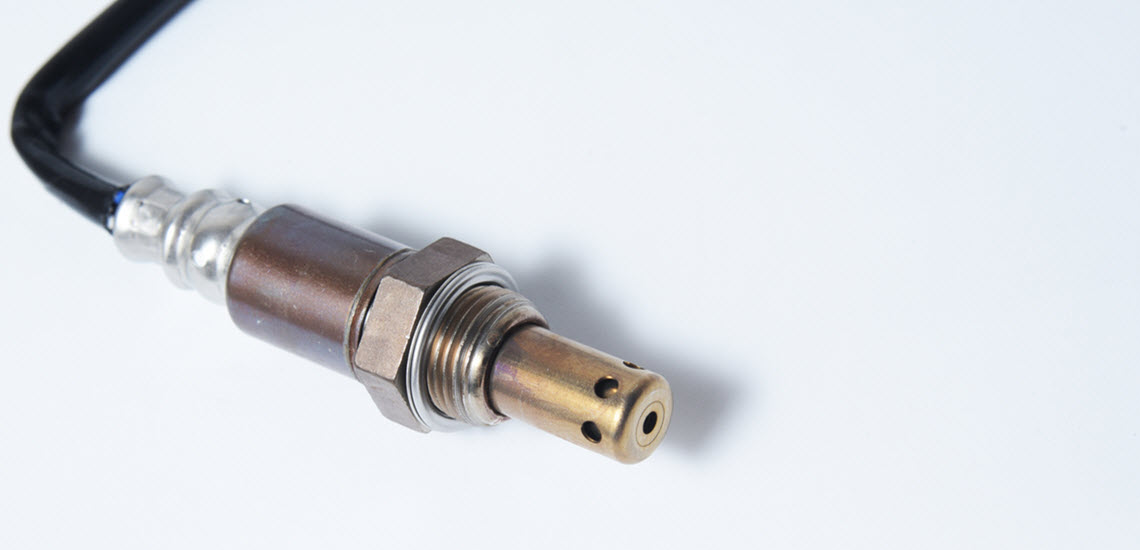
If you don’t own a Volkswagen (VW), you might think that the only VW out there is the classic Beetle, one of their most well-known cars. But VW also makes the Jetta, Passat, Golf, Atlas, and other makes. Additionally, VW is the owner of elite brands such as Lamborghini, Bentley, Bugatti, Audi, and Porsche. It is the third largest automobile manufacturer in the world. Even though this company has persevered since 1938, the cars they manufacture still require maintenance and repairs just like every other car. A primary component of the exhaust system, the oxygen (O2) sensor, is one of those parts which needs to be replaced periodically.
What is the O2 sensor?The O2 sensor measures the amount of oxygen at various points in the exhaust system. Most [...]
]]>
If you don’t own a Volkswagen (VW), you might think that the only VW out there is the classic Beetle, one of their most well-known cars. But VW also makes the Jetta, Passat, Golf, Atlas, and other makes. Additionally, VW is the owner of elite brands such as Lamborghini, Bentley, Bugatti, Audi, and Porsche. It is the third largest automobile manufacturer in the world. Even though this company has persevered since 1938, the cars they manufacture still require maintenance and repairs just like every other car. A primary component of the exhaust system, the oxygen (O2) sensor, is one of those parts which needs to be replaced periodically.
What is the O2 sensor?
The O2 sensor measures the amount of oxygen at various points in the exhaust system. Most cars have at least 2 O2 sensors, but some cars have as many as 8 O2 sensors. The O2 sensor sends information to other parts of the car that can then adjust the timing of the fuel ignition in the combustion process, for example. The sensor has the ability to indirectly set the amount of fuel used during the idling process. Hence, this small part plays a very large role in how your car runs.
How do you know if the O2 sensor is failing?
When the O2 sensor is failing, it might sporadically lose its ability to properly read the O2 level in the exhaust or at other various points in the exhaust system. This can cause misinformation to be sent to other components of the car, which might be where you see some of these symptoms. Below is a list of issues you might experience if the O2 sensor is failing.
Check Engine Light is On
The check engine light is the universal indicator that something is wrong with your vehicle. A differential diagnosis is the best way to determine why the check engine light is on. Sometimes, it might be a warning that you need an oil change. Other times, it might be the O2 sensor.
Engine is Running Rough
If your engine is running rough, meaning that feels like it is jumping or about to stall out, it could be the O2 sensor. This can happen when the O2 sensor sends misinformation to the fuel ignition process, causing the fuel to ignite early or late. This can also happen when the engine is idling.
Excess Fuel Usage
If your car starts using more fuel than is normal, it might be due to the O2 sensor. If the O2 sensor is sending signals to ignite fuel more frequently, you will be using more fuel to run your car. You might also find that more fuel is being released with the exhaust, and that will cause fuel efficiency to decrease as well.
When It’s Not The O2 Sensor
The issues listed above can also be symptoms of other problems. It might be easier to replace the O2 sensor than to fix the timing of when fuel is ignited. However, this is why it is so important to have a trusted automobile service specialist that can appropriately assess your vehicle and diagnose the problem.
When Should You Replace Your O2 Sensor
There are several schools of thought regarding when you should replace your O2 sensor. One thought is that the lifespan of an O2 sensor is about 50,000-60,000 miles. That school of thought also states that the O2 sensor will last longer if the car is properly maintained; hence, the suggested time to replace the O2 sensor is between 60,000-90,000 miles. Another school of thought is that the O2 sensor will likely last the lifetime of the vehicle, and therefore, the only time to replace the sensor is when or if it goes bad.
Trust Glenwood Foreign Car Can Replace Your O2 Sensor
Glenwood Foreign Car first opened for business 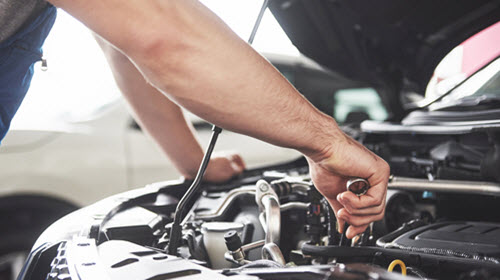 in 1977. Since then, we have built our reputation by providing quality services at reasonable prices. Volkswagen and other European and German automobile owners have come to count on us as experts in the foreign automobile industry. We are proud to serve our neighbors from Upper Makefield Township, Yardley, Newtown, Morrisville, and the surrounding communities. Please stop by or give us a call with your questions. We look forward to earning your business and more importantly, your trust.
in 1977. Since then, we have built our reputation by providing quality services at reasonable prices. Volkswagen and other European and German automobile owners have come to count on us as experts in the foreign automobile industry. We are proud to serve our neighbors from Upper Makefield Township, Yardley, Newtown, Morrisville, and the surrounding communities. Please stop by or give us a call with your questions. We look forward to earning your business and more importantly, your trust.